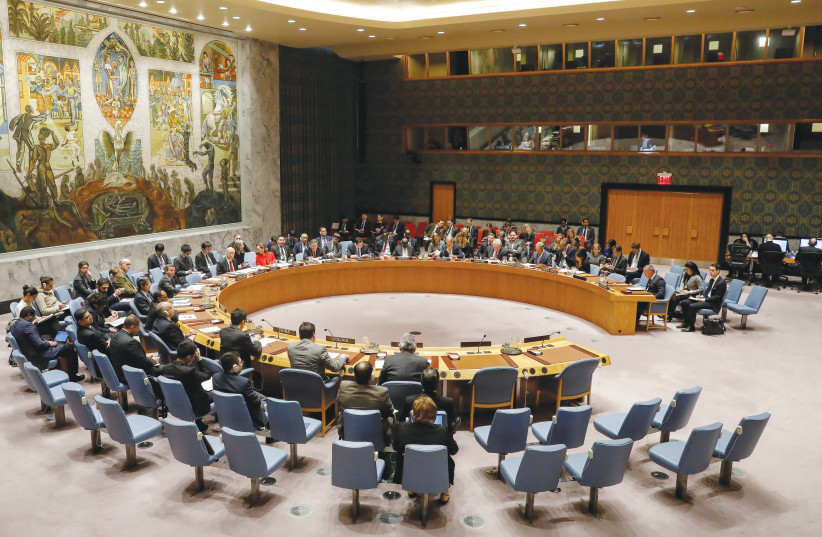The Biden administration has pushed the United Nations not to update its database of companies that operated in West Bank settlements and over the pre-1967 lines in east Jerusalem and the Golan Heights, warning that it poses a threat to those corporate entities.
“The US opposes the creation of this database ... and continues to oppose any work to update it,” US State Department deputy spokesman Vedant Patel told reporters in Washington on Friday afternoon.
The database, which Israel has dubbed "the blacklist" was first published in 2020 by the UN Office of the High Commissioner for Human Rights located in Geneva in fulfillment of a request by the UN Human Rights Council (UNHRC).
It was created to underscore the UN's belief that such business activity is illegal under international law. The UN has not generated a similar list for countries that do business in other regions, where such activity is deemed by the international community to be illegal.
The US listed 130 corporate entities operating over the pre-1967 lines, of which 112 were local Israeli companies and 18 were foreign-based businesses.

Lack of funding has prevented the UN from expanding the list. Former UN High Commissioner for Human Rights Michele Bachelet who left office in August had spoken this year of her intention to add additional companies to the list despite the lack of proper funding for the work.
Bachelet's successor, Volker Turk of Austria, is expected to update the list.
On Friday, Patel told reporters that the Biden administration has not cooperated and will not cooperate with Turk's office on the matter.
"Our position has been repeatedly made clear in public statements as well as in meetings that we’ve had directly with the Office of the High Commissioner," Patel said.
The Biden administration has opposed Israeli settlement activity but has argued that the UN's bias against the Jewish state makes it impossible to support UN action against those settlements, including the blacklist.
Opponents of the database have argued that it serves the interest of the Boycott, Sanctions and Divestment movement and helps those who want to boycott the Jewish state.
"The database only serves to reinforce an anti-Israeli bias that too often finds traction in UN venues," Patel said.
"This database poses a genuine threat to companies doing business or considering business operations in the region, and that’s why we’ve opposed the creation of this database and continue to oppose any work to update it."
Separately, the UNHRC on Friday elected Czech Ambassador Vaclav Balek to serve as its president for 2023. He will replace Argentinian Ambassador Federico Villegas.
